Publications
Articles, publications, books, tools and multimedia features from the U.S. Institute of Peace provide the latest news, analysis, research findings, practitioner guides and reports, all related to the conflict zones and issues that are at the center of the Institute’s work to prevent and reduce violent conflict.
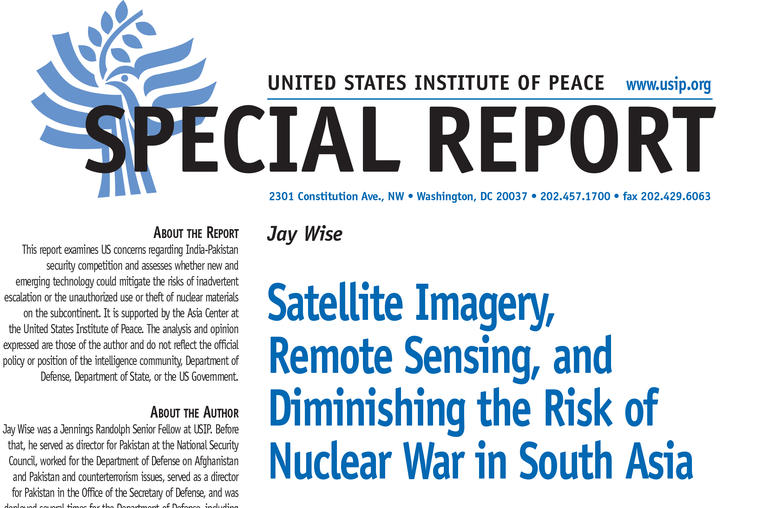
Satellite Imagery, Remote Sensing, and Diminishing the Risk of Nuclear War in South Asia
This report examines U.S. concerns regarding India-Pakistan security competition and assesses whether new and emerging technology could mitigate the risks of inadvertent escalation or the unauthorized use or theft of nuclear materials on the subcontinent.

Johnny Walsh on Election Season in Afghanistan
As Afghans wait for official results from the parliamentary polls, Johnny Walsh says that the country is already entering “high political season” in preparation for the critical April 2019 presidential election. Although the Taliban continues to carry out high-profile attacks across the country, Walsh says that many Afghans are focused on the presidential polls and its implications for the peace process.

Moeed Yusuf on Pakistan’s Elections
On Pakistan’s Election Day, Moeed Yusuf analyzes the significance of the country holding its third democratic election in a row amid a persistent power imbalance between the military and civilian spheres. Concerning U.S. interests, Yusuf says American engagement with Pakistan must go beyond Afghanistan issues, which Islamabad does not view as a top priority.
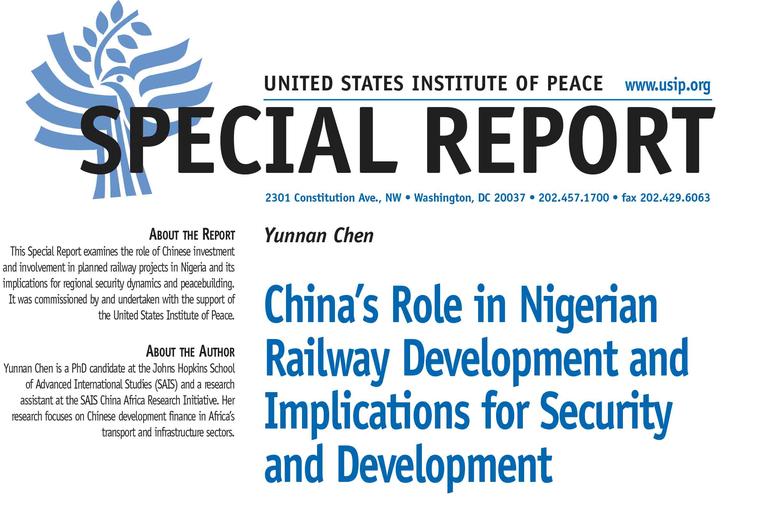
China's Role in Nigerian Railway Development and Implications for Security and Development
This report focuses on Chinese involvement and investment in Nigeria’s railway sector and the intersection of planned projects and regional security dynamics. Examining the role of Chinese loan financ
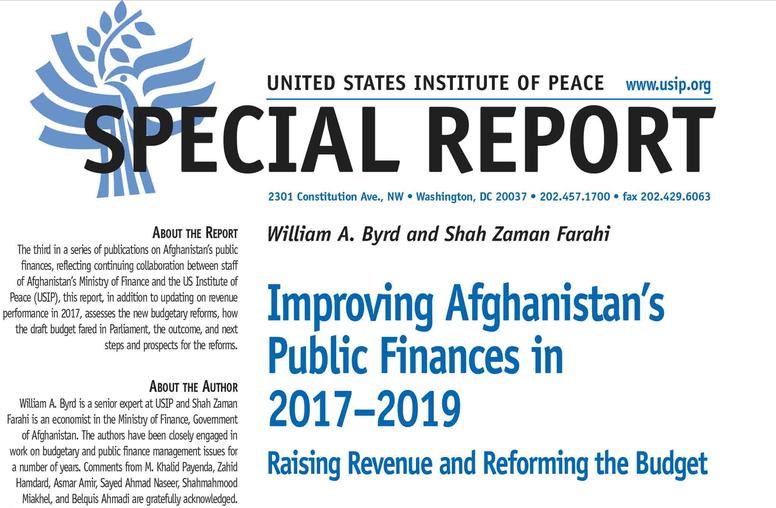
Improving Afghanistan’s Public Finances in 2017–2019: Raising Revenue and Reforming the Budget
The Afghan government has recently embarked on important reforms to the national budget, embodied in the 2018 budget approved by Parliament early this year. This budget sets in motion an envisaged two-year reform process to achieve greater overall transparency, better development programming, and reduced corruption. The third in a series on Afghanistan’s public finances, this report updates revenue performance in 2017 and assesses the new budgetary reforms, how the draft budget fared in Parliament, the outcome, and next steps and prospects for the reforms.
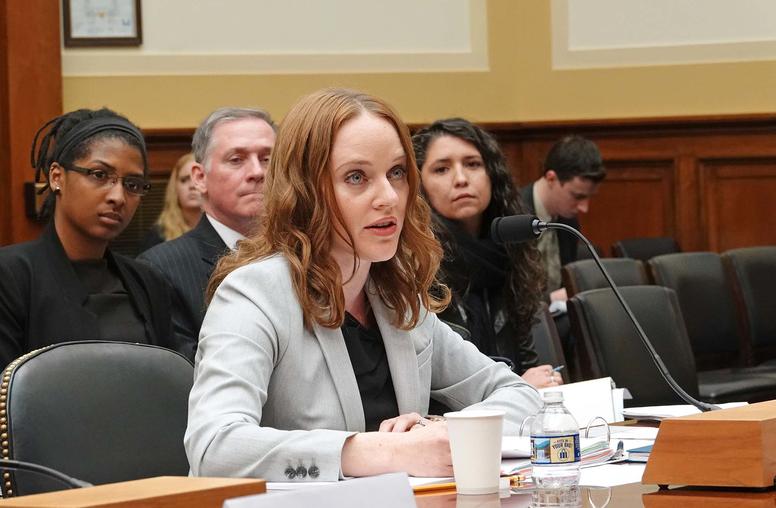
Grading Counterterrorism Cooperation with the GCC States
This testimony covers the following questions: (1) How have GCC countries addressed violent extremism and terrorism within their own national borders; (2) How have GCC countries addressed violent extremism and terrorism regionally and internationally; and, (3) What recommendations can enable future GCC efforts to go beyond eliminating today’s terrorists and prevent terrorism from emerging in the first place?
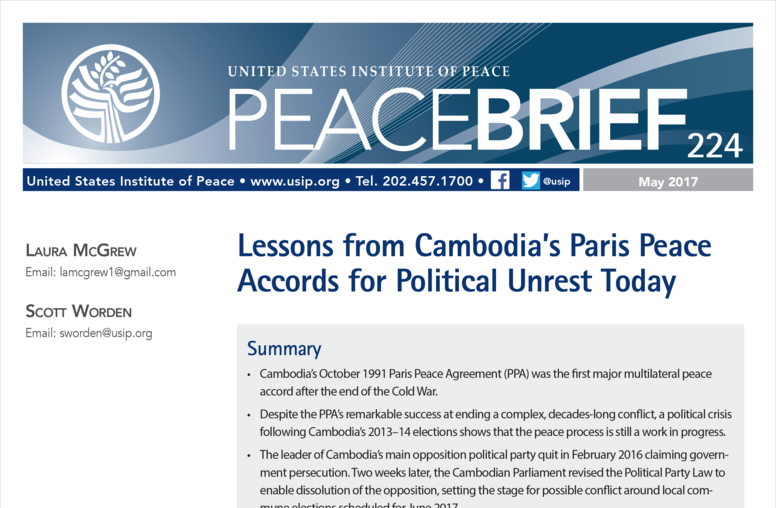
Lessons from Cambodia’s Paris Peace Accords for Political Unrest Today
In December 2016, to mark the twenty-fifth anniversary of the 1991 Paris Peace Agreement that ended the decade-long war between Cambodia and Vietnam, USIP hosted a conference to examine the implementation of that agreement and how the decisions made in the past have affected increasing political unrest in the country. Panelists included several key actors...
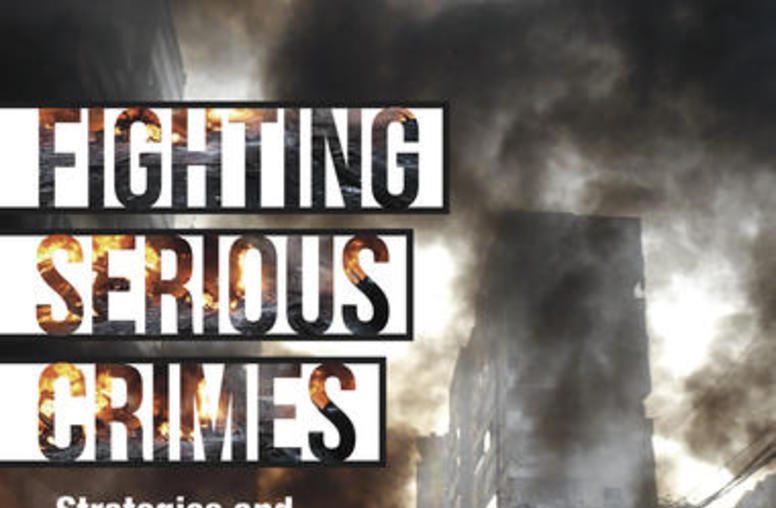
Fighting Serious Crimes
Fighting Serious Crimes: Strategies and Tactics for Conflict-Affected Societies is an invaluable resource for anyone battling serious crimes in societies seeking to avoid conflict, to escape from violence, or to recover and rebuild. Packed with practical guidance, this volume includes real world examples from more than twenty of today’s conflict zones, including Libya, Yemen, Iraq, Afghanistan, Somalia, and Colombia.
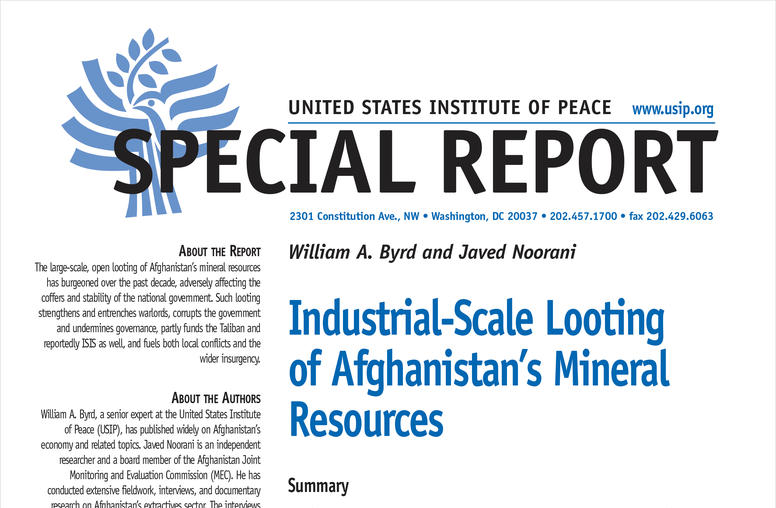
Industrial-Scale Looting of Afghanistan’s Mineral Resources
Afghanistan has been plagued by large-scale, open looting of mineral resources, involving significant mining operations, bulk transport of minerals along main roads, and crossing the border at just a few, government-controlled points. This mineral looting, amounting to hundreds of millions of dollars per year, involves widespread corruption, entrenches warlords and their networks, and fuels both local conflicts and the wider insurgency in Afghanistan. The government needs to begin to get a better handle on resource exploitation and to collect more substantial royalties and taxes from ongoing mining activities.
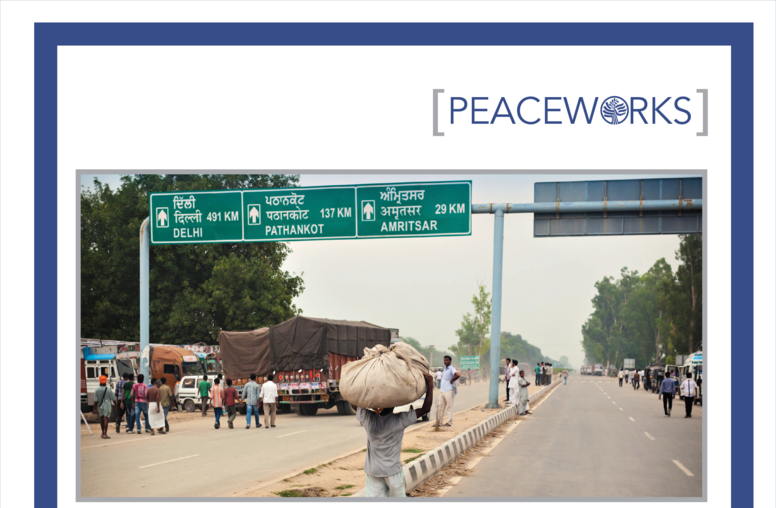
Misperceptions About India-Pakistan Trade
Larger political issues between India and Pakistan—from border conflicts to mutual government mistrust to long-standing rivalry—have been the main driver for the limited trade and economic cooperation between the two countries. This report, however, makes the case that working within existing protocols to enhance existing trade and cooperation, rather than addressing the more obvious and chronic political issues, is necessary to peacebuilding in the region.